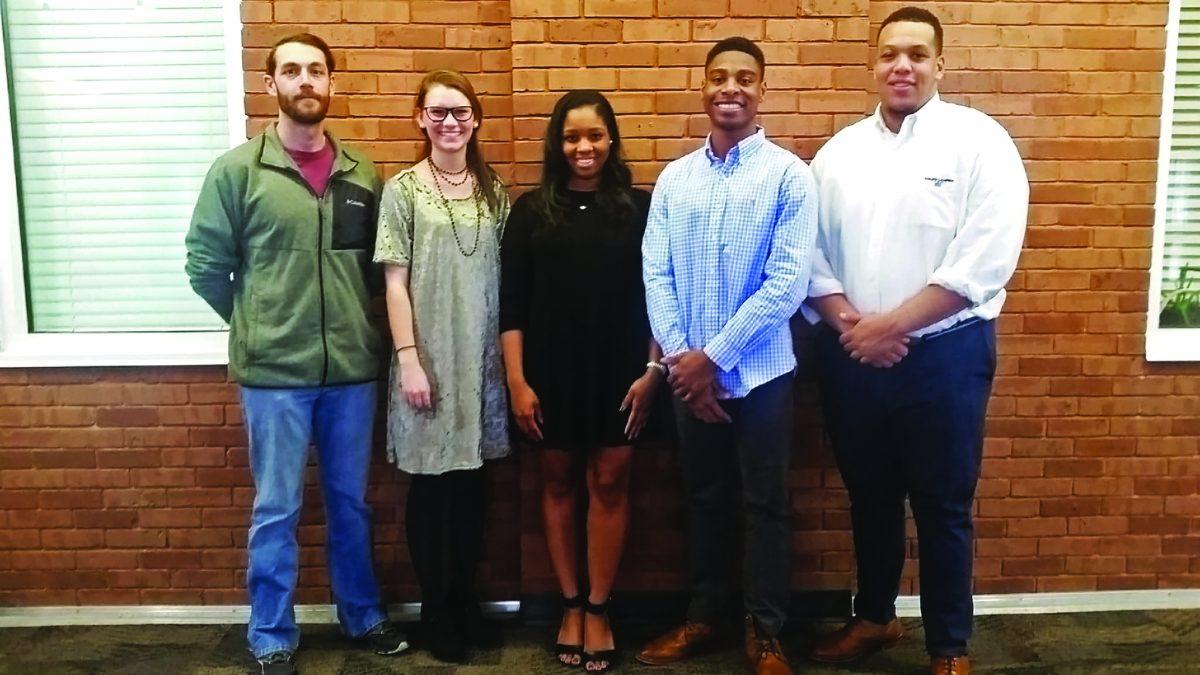The Entrepreneurship Center Advisory Board (ECAB) held its first meeting of 2018 on Friday, where it heard pitches for funding from three business startup teams.
ECAB is a step in the VentureCatalyst Program, where individuals present their startups to a board of about a dozen professors, CEOs and businessmen and women. The board can decide to grant the entrepreneurs up to $2,000.
Similar to the show “Shark Tank,” the event provides an option for MSU students and staff to get their business ideas off the ground.
The board heard from Vicki Jordan, Thomas White and Tyler Anthony first. The first two of the group are graduates, Jordan in psychology and White in engineering, and Anthony is a senior computer engineering major.
Since White is a barber “on the side,” he came across a big problem in the industry—a hair clippers overheating quickly, usually after the second haircut. This issue forces beginning barbers to purchase several sets of the tool, so they can switch it out when it gets too hot.
The group’s proposition is a product called DueT Technology, a clipper with a built-in fan. The name stems from co-founders White and Anthony’s first names—Thomas and Tyler—and they claim the barber and clipper can work in “perfect harmony.”
Their presentation to the board started as an acted-out scenario between White and Anthony. White approached Anthony as a new barber looking to purchase some startup hair tools. Anthony said the young barber would need two or three of the same clippers to get started, because each one would overheat after a few haircuts. White asked why the clipper manufacturer does not simply make a product which does not overheat. Anthony quickly hushed him.
“Let me tell you a secret,” Anthony said. “That’s how we make money.”
White had a similar situation as a barber, which inspired DueT Technology. Anthony said this overheating obstacle is an “overwhelming problem in the industry.”
The group’s members claimed there is not a product currently on the market like theirs, so their goal is to create brand loyalty. While there are ceramic clippers produced, which promise the blades will stay cool, White said the motor overheats.
The team established a fairly popular social media presence through an account called Barber Style Directory, where they upload and share haircut tutorials. Over the past eight months, they have gained nearly 8,000 Instagram followers, 14,000 YouTube subscribers and more than one million views. They also have a five-star rating on Facebook with more than 100 reviews.
The group told the board DueT Technology’s market is primarily millennial barbers, and their cooling system is patentable. They asked the board for $2,000 in funding to build 10 more prototypes.
The next presenter was Marshall Davis, a mechanical engineering student, who proposed a credit card-sized multi-tool card. While the product is in the product design stage, so far it has 12 different tools on it. These tools include: a ruler, saw, protractor, can-opener, compass, bottle opener, small blade, Phillips head, flat head, eyeglass screwdriver, letter opener and wrenches.
“My goal is to put a tool bag in the wallet of every college fan, college student and alumni,” Davis said. “The problem I’m trying to solve is, every day you face a problem or an obstacle where you could use a tool, but in most situations, you don’t have it on you, like if you’re at the office, you’re on campus or you’re at home and you can’t find it.”
Davis said his goal is to create this card and put a college logo on it. He said the market is mainly geared toward mechanical engineering students, but can be used by everyone. His recent survey concluded the favorite tool among college students was the bottle opener.
Competition for the product includes Wallet Ninja and Pocket Monkey, but the protractor and compass tools are unique to Bullycard.
Board member Paul Luckett asked why Davis should make his own card when he can buy licensing from another company and simply print a college logo on the card. Davis answered the profit margin would be less.
Davis asked the board for $1,000 to fund prototyping, and $1,000 to fund market research.
The last presentation was given by Madison Grant, a junior business administration major. Her idea is to have a coffee truck or trailer where anyone can get a beverage “on the go.” She proposed jitterbeans, an authentic coffee shop experience without the long wait.
With the truck, Grant wants to “follow the masses,” and set up at places like hospitals, schools and sporting events.
Grant claimed there are no coffee trucks in Starkville, so she wants to cater to a large market of adult coffee drinkers, not only students. Her plan is to start off in a small trailer and eventually purchase a truck.
Grant asked the board for $2,000 in funding to mainly purchase coffee supplies, such as an espresso machine.
At the meeting, the board did not release its decision on whether or not they would fund these startups. The next ECAB meeting is 12:00 to 2:30 p.m. Feb. 23 in McCool 339.
ECAB hears ideas for clipper, card and coffee
0
Donate to The Reflector
Your donation will support the student journalists of Mississippi State University. Your contribution will allow us to purchase equipment and cover our annual website hosting costs.
More to Discover













